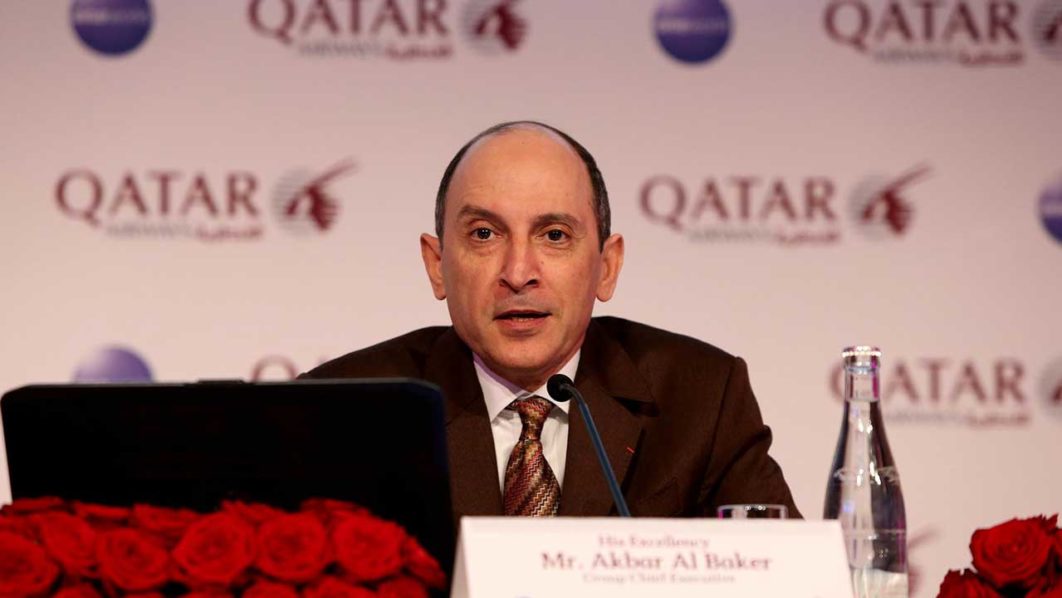Government’s plan for a national carrier, decades after the demise of the Nigerian Airways, will be a pipe dream unless it is ready to invest massively in airport infrastructure.
Board chairman of the International Air Transport Association (IATA) and chief executive officer of Qatar Airways, Abkar Al-Baker, made this disclosure at the weekend while responding to questions on the sidelines of the Doha Forum, a yearly global policy formulation conference organised by the Qatari government.
With Nigeria’s large market and strategic position in Africa, a national airline will make the country an aviation hub and boost its struggling economy.
“Nigeria wants to be connected to the world,” Al-Baker said. “This is why they want a national carrier, not only to connect to Africa but also to connect the world by making a hub in Nigeria.”
He explained that this could only be achieved if the country first builds an airport infrastructure and the air safety needed for it. “Before you can launch a national carrier, you need to have an international airport to a level that meets international requirements,” Al-Baker said while confirming that Nigerian authorities recently sought technical advice and support from Qatar Airways in the country’s quest for a new national carrier.
He said his airline offered detailed advice to the ‘civil aviation ministry’ on how Nigeria could structure the project and recommended massive investments to meet safety and security requirements and build passenger traffic suitable for an aviation hub.
“The civil aviation ministry approached us for our assistance, our opinion on how they could structure a national carrier and we gave a very detailed advice to the authorities,” he said.
“You had Nigeria Airways a couple of decades ago. Things have moved from that time in the place of safety, security requirement, passenger flows and having structure. And in 20 years, you have airplanes. You don’t have to stop so that you can connect Nigeria directly from all over the world. So, we gave them advice on how to do it and told them that it would require massive investment.
“In addition to this, they recently took my opinion on what type of aircraft they should buy, based on what will suit the performance of what is required to be done by this national carrier.”
On why he thought his airline had the capacity to help the country set up its national carrier, the IATA chairman explained that Qatar Airways had “very good experience of” how to create a large hub in an area that had very tough competition.
Operating successfully from the Middle East and making global impact in less than two decades of its creation, Qatar Airways is surrounded by aviation giants like the Emirates and Etihad, among others. “You do not have any competition close to Nigeria. The closest competitor is Ethiopia Airlines to the East, South Africa Airways to the South and Air Maroc to the West.”
Following two failed attempts by previous governments to reinvent a flag carrier in the last decade, the Muhammadu Buhari administration has continued to show interest in the project, which has elicited mixed reactions on its feasibility and transparency.
The outcry among Nigerians bordered on availability of credible, competent investors and pending issues regarding the defunct Nigeria Airways, which reportedly failed on the back of official corruption and poor corporate governance. Schools of thought had, in the wake of the renewed efforts, suggested different models, including the merging of two or more local airlines to be run by a consortium of technically sound foreign investors. On the unofficial list of potential investors at the time were Emirates, Ethiopia Airlines, Etihad and others.
But there were concerns that the project was shrouded in secrecy. Minister of State for Aviation Hadi Sirika, who had called off the debate in the heat of the controversy (on grounds that the country was not ready), told stakeholders a month ago that the project would still come on board.
Guardian




